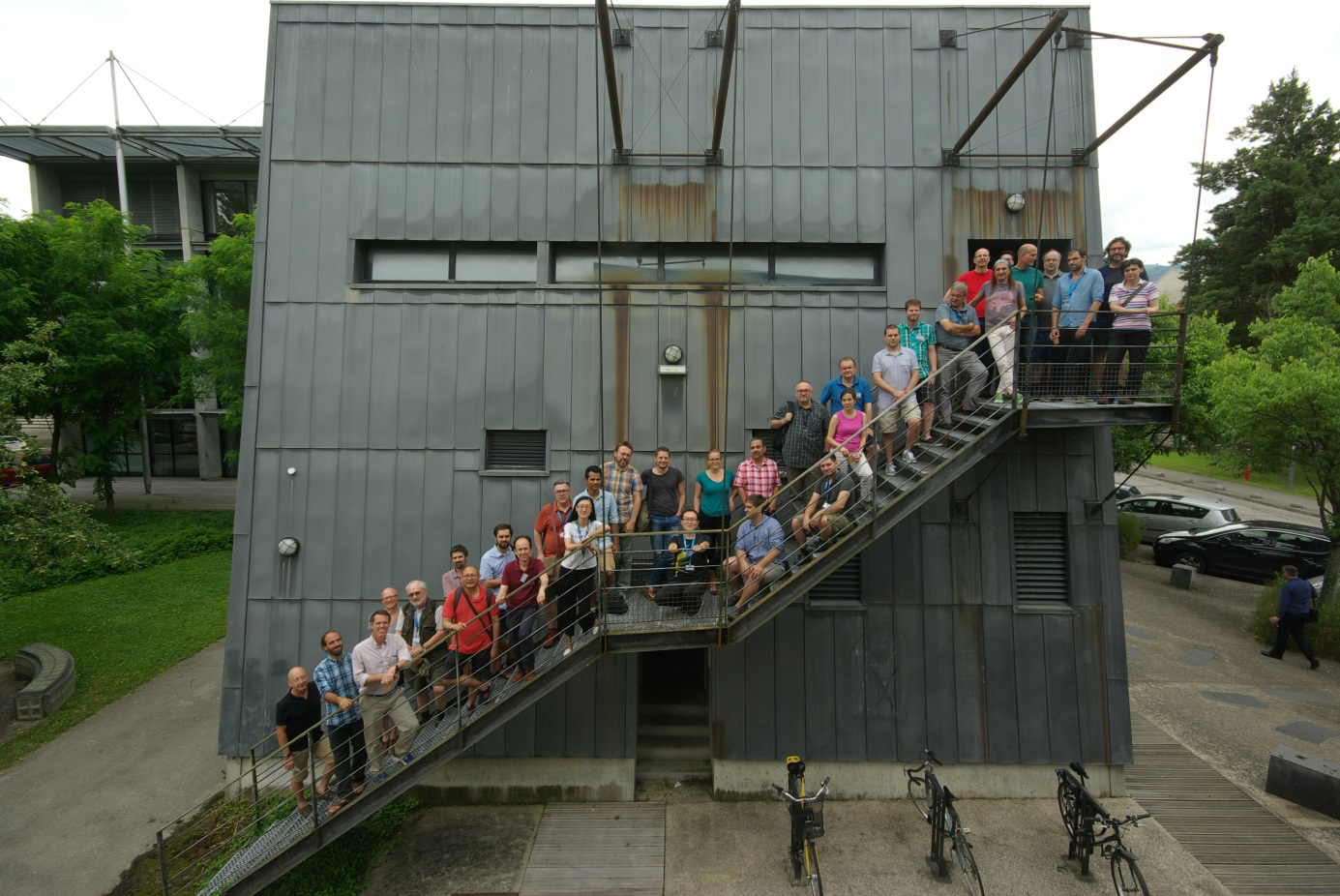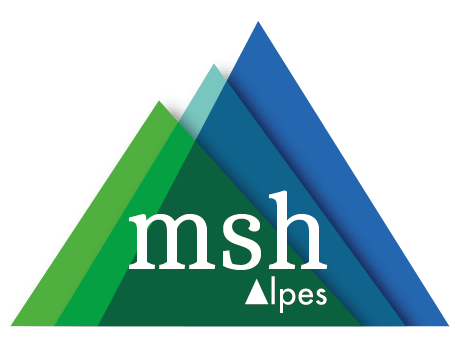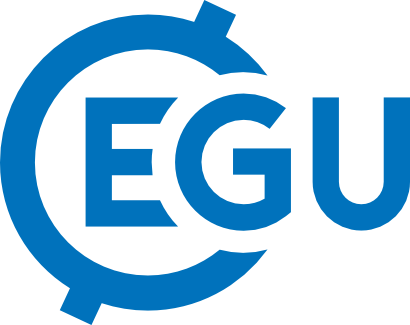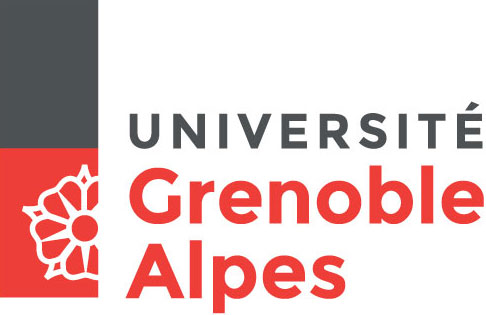
 ujf-grenoble.fr
ujf-grenoble.fr
The Floods Working Group will hold their first workshop in Grenoble, France from 27-30 June 2016.
Download the workshop flyer here.
Acccess the final program here.
Access the book of summaries here.
Venue
Maison des Sciences de l’Homme-Alpes, 1221 avenue Centrale, Domaine Universitaire, 38400 Saint Martin d’Hères, France.
Workshop aims
The Cross community workshop on past flood variability aims to:
- gather scientists from different archive communities and promote collaboration
- discuss archive-specific methodological aspects
- discuss advantages/challenges/limitations of each archive and exchange experiences
- intensify work on database
- define and discuss goals, products and timelines for the coming year and the complete first three-year period of the Floods Working Group.
Sessions and discussion topics
The following sessions and discussion topics are being prepared:
Session I: What archives can be used to reconstruct past flood variability?
Session II: How to develop a multi-archive approach?
Session III: How to proceed from paleo-flood data sets to statistical analysis, hydro-climate modelling and flood-hazard assessment?
Archive-specific group discussions:
i) Discuss the potential of and the interest in archive-specific review papers in the frame of a post-conference special journal issue.
ii) Discuss the ‘ideal’ data format (required fields) for a paleo-flood database.
Plenary discussions:
I. Summary of group discussions
II. How to proceed with the collection of data and the database
III. Goals, products and timelines for the first 3-year period of the working group.
Post-workshop material

> Report summarizing main points (PDF)
If you would like to access video of any oral or keynote presentations listed below, please contact Floods Working Group leaders here.
Session 1 - What archives can be used to reconstruct past flood variability?
Keynote speakers:
Neil MACDONALD > Documentary flood records, so much more than just a flood magnitude
Scott ST GEORGE > Trees as flood sensors
Rhawn DENNISTON > Speleothems as Records of Discrete Flood Events
Mark MACKLIN > Flood records from river sediments and the geomorphology of climate change impacts
Blas VALERO-GARCES et al. > Millennial–scale flood variability in the Iberian Peninsula from Lake Records: a review
Oral presentations
Flavio ANSELMETTI et al. > Patterns and controls of Holocene flood frequency across the Swiss Alps on the basis of 4700 lacustrine flood layers
Fabien ARNAUD > Is deeper the better? The potential of deep coring in deep large perialpine lakes to get plurimillenial flood records
Juan A. BALLESTEROS et al. > Paleoflood reconstruction in the Indian Himalayas based on tree rings
Mariano BARRIENDOS > Contribution of documentary archives to past flood variability. Limitations and opportunities in Western Mediterranean Basin
Sebastien BERTRAND et al. > The potential of fjord sediment geochemistry for high-resolution paleohydrological reconstructions
Laurent DEZILEAU et al. > A multi-dating approach applied to historical slackwater flood deposits of the Gardon River, SE France
Pierre FRANCUS et al. > Diversity of the signature of floods within varves sediments of North America
Rüdiger GLASER et al. > Floods in Central Europe since AD1000 – data, methods and results in the context of modern risk analysis …
Lin JI et al. > Extraordinary paleofloods response to Holocene climatic change over the East Asia monsoon zone (...)
Uday KUNWAR THAPA et al. > An evaluation of the Nepal Himalaya tree-ring network and its potential application to paleodischarge studies
Mark LÜTSCHER > Tracking extreme precipitation events in speleothems: examples from the Alpine and Mediterranean regions
Matthew THERRELL et al. > Anatomical variability in tree-rings related to large-scale flooding
Maria VELEZ et al. > Late Holocene Paleoflood History of the Cauca River, Colombia (SA)
Poster presentations
Michel LANG et al. > BDHI: a French national database on historical floods
Jessica MOLONEY et al. > Extending the palaeoflood record: assessing the reliability and viability of palaeoflood records
Samual MUNOZ et al. > Overbank flooding of the Mississippi River in the context of the late Holocene climatic variability and land use change
Aurel PERSOIU et al. > Holocene floods in the inner Carpathian Region, Eastern Europe
Georges PICHARD et al. > A multi-secular database (AD 1300-2000) on the historical flood variability in the Lower Rhone Valley
Pierre SABATIER et al > Mid to Late Holocene flood activity in Northern French Alps (Lake Savine)
Session 2 - How to develop a multi-archive approach?
Keynote speaker:
Lothar SCHULTE > The challenge of multidisciplinary reconstruction of paleofloods
Oral presentations
Gerardo BENITO > Palaeoflood analysis from fluvial and lake records in Spain
Richard CHIVERELL et al. > Quantifying magnitude and frequency of recent extreme floods using lake sediment records from the UK
Markus CZYMZIK et al. > Calibrating detrital layers in varved lake sediments for quantified flood reconstruction
Tina SWIERCZYNSKI et al. > Understanding floods and risks of the last 7000 years at Lake Mondsee
Poster presentations
Tobias SCHNEIDER et al. > Ultra-high resolution flood history in lake sediments from SW Ecuador of the past two thousand years: El Niño or not?
Session 3 - How to proceed from paleo-flood data sets to statistical analysis, hydro-climate modeling and flood-hazard assessment?
Keynote speaker:
Manfred MUDELSEE > Statistical Flood Risk Analysis: From Paleo to Present
Oral presentations
Libor ELLEDER > Hydrological Approach for Flood Reconstruction
Tao LIU et al. > Paleoflood Hydrology in China, a Review
Josué POLANCO MARTINEZ et al. > The BINCOR R package: a computational software to estimate the correlation between two irregular paleoclimate time series
Willem TOONEN > Historical and palaeoflood records to assess flood risk and the impacts of climate change (…)
Arturo VALDES > Historical floods in Tabasco and Chiapas during sixteenth–twentieth centuries
Oliver WETTER > Reconstruction of peak water levels, peak discharges and long-term occurrence of (…) flood events of rivers (…) in Switzerland
Poster presentations
Andres ANTICO et al. > Anatomies of extreme Paraná River floods: Contributions of different time scales
Carles BALASCH > Spatial and temporal flood variability in the Ebro basin since 1600 AD
Xavier CASTELLFORT et al. > A method to evaluate the average holocene palaeoflood
Monica IONITA et al. > Patterns of extreme climate indices associated with observed and proxy Ammer river floods
Juan Carlos PENA et al. > Climate drivers of high-summer floods in Switzerland (1800-2010)
David PINO > Synoptic conditions, convective indexes and timescale during the major flash floods in NE Iberian Peninsula since 1871
Additional talks
Pierre FRANCUS et al. > Discuss the ‘ideal’ data format (required fields) for a palaeoflood database
Scott ST GEORGE > Discuss experience from another PAGES WG
Victor R. BAKER > Global extreme flood archive for advancing science and hazard mitigation
Publications stemming from the workshop
> White Paper: For an improvement of our flood knowledge through paleodata
> Recent advances in paleoflood hydrology: From new archives to data compilation and analysis
> On the extraordinary winter flood episode over the North Atlantic Basin in 1936
> Flood events in Transylvania during the Medieval Warm Period and the Little Ice Age
> Workshop report: Using Archives of Past Floods to Estimate Future Flood Hazards
Workshop sponsors





